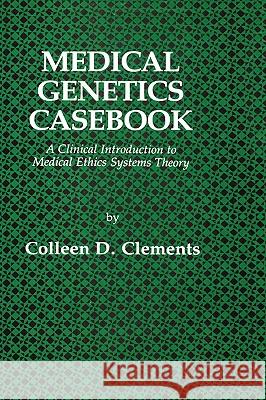Medical Genetics Casebook: A Clinical Introduction to Medical Ethics Systems Theory » książka
Medical Genetics Casebook: A Clinical Introduction to Medical Ethics Systems Theory
ISBN-13: 9780896030336 / Angielski / Twarda / 1982 / 233 str.
The Direction of Medical Ethics The direction bioethics, and specifically medical ethics, will take in the next few years will be crucial. It is an emerging specialty that has attempted a great deal, that has many differing agendas, and that has its own identity crisis. Is it a subspecialty of clinical medicine? Is it a medical reform movement? Is it a consumer pro tection movement? Is it a branch of professional ethics? Is it a ra tionale for legal decisions and agency regulations? Is it something physicians and ethical theorists do constructively together? Or is it a morally concentrated attack on high technology, with the prac titioners of scientific medicine and the medical ethicists in an adversarial role? Is it a conservative endeavor, exhibiting a Frankenstein syn drome in Medical Genetics ("this time, they have gone too far"), or a Clockwork Orange syndrome in Psychotherapy ("we have met hods to make you talk-walk-cry-kill")? Or does it suffer the afflic tion of overdependency on the informal fallacy of the Slippery Slope ("one step down this hill and we will never be able to stop") that remains an informal fallacy no matter how frequently it's used? Is it a restricted endeavor of analytic philosophy: what is the meaning of "disease," how is "justice" used in the allocation of medical resources, what constitutes "informed" or "consent?" Is it applied ethics, leading in clinical practice to some recommenda tion for therapeutic or preventive action? This incomplete list of questions indicates just how complex,"











